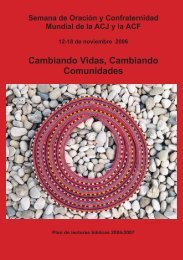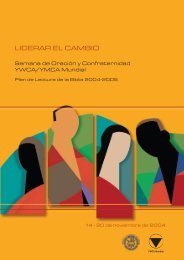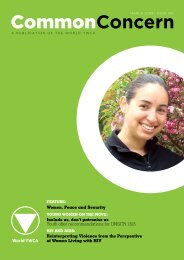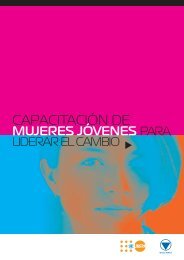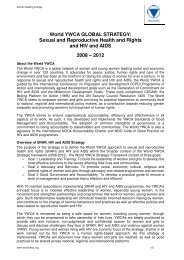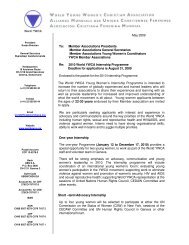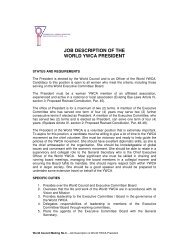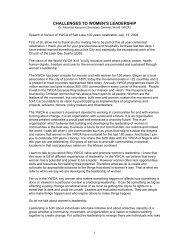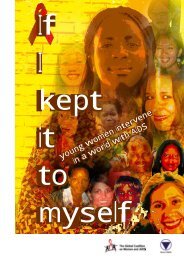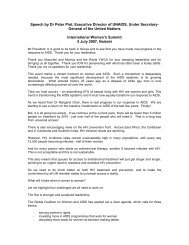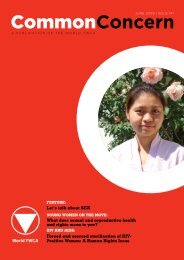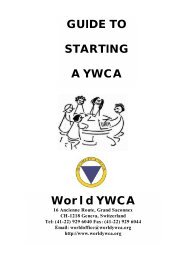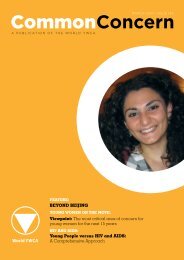Born Free, Born Equal: Celebrating Human Rights - World YWCA
Born Free, Born Equal: Celebrating Human Rights - World YWCA
Born Free, Born Equal: Celebrating Human Rights - World YWCA
- No tags were found...
Create successful ePaper yourself
Turn your PDF publications into a flip-book with our unique Google optimized e-Paper software.
Everyone is entitled to all the rights and freedoms set forth in this Declaration,without distinction of any kind, such as race, colour, sex, language, religion, politicalor other opinion, national or social origin, property, birth or other status…(Universal Declaration of <strong>Human</strong> <strong>Rights</strong> – Article 2.1)DAY 1: WHY ENGAGE IN HUMAN RIGHTSWORK?Bible reading: Genesis 1“So God Created humankind in his image, in the image of God hecreated them, male and female he created them.” Genesis 1:27Many twentieth-century developments in the area of human rights,including the Universal Declaration of <strong>Human</strong> <strong>Rights</strong>, have been stronglyinfluenced if not inspired by Christians. But we must be cautious of movingtoo directly from biblical and earlier Christian perspectives to current humanrights understandings, especially in today’s multi-religious and secularworld. <strong>Human</strong> rights have developed through complex interacting historicalprocesses informed by experiences of oppression and totalitarianism,injustice and violation of human rights. Yet, human rights can be seen asrooted in, and as the modern political fruits of, ancient religious beliefs andpractices.Although human rights generally are consistent with biblical perspectivesand priorities, they are not ‘owned’ by Christians. Indeed there has been anambiguous historical record with regards to churches and human rights,such as using selected passages of Scripture to deny equal human rightsto women or to justify the use of violence. At times, churches have beenopposed to rather than promoters of basic human rights. Thus, soberinghumility and ongoing critique are required; religious traditions may need tobe critiqued from human rights perspectives, and some (e.g. individualistic)human rights interpretations or applications may need to be critiqued fromreligious perspectives.In creation, God gives all human beings a dignity (created in the image ofGod, Genesis 1:27). This is at the heart of what motivates human rightswork. <strong>Human</strong> dignity is first and foremost in relation to God. This basicdignity must be vigorously defended and upheld in the face of all those5



